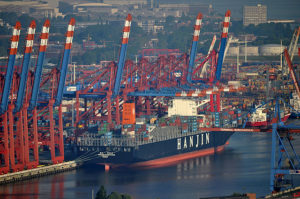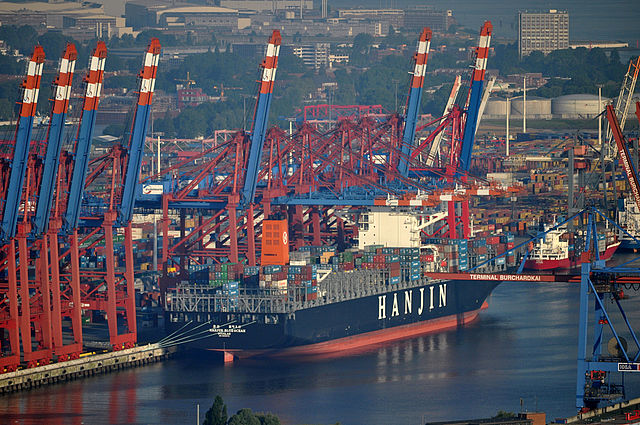 South Korea’s Hanjin Shipping Co. was formally declared bankrupt by a Seoul district court on February 17, signaling the end for what once was the country’s biggest carrier and the world’s seventh leading container shipping line.
South Korea’s Hanjin Shipping Co. was formally declared bankrupt by a Seoul district court on February 17, signaling the end for what once was the country’s biggest carrier and the world’s seventh leading container shipping line.
The Seoul Central District Court pronounced Hanjin Shipping bankrupt after a two-week period for appeal. All creditors are required to report their right to claim debts by May 1.
Weighed down by US$5.4 billion worth of debt, Hanjin Shipping in late August 2016 approached the court to seek protection for its assets from its creditors. It was granted court receivership in September last year, as its debtors, led by state-run Korea Development Bank, rejected its self-rescue plan.
After Hanjin’s official bankruptcy, the court said a bankruptcy trustee will be named to handle the liquidation of the shipping line’s assets and use the payments to settle debts with creditors.
“We will make efforts so that debts will be paid off to Hanjin Shipping’s creditors through fair liquidation proceedings,” the court said.
Earlier this month, the court said it decided to end the debt rehabilitation scheme for the shipping line as most of Hanjin’s key assets had already been sold.
These included its share in port terminal operator Total Terminals International LLC (TTI) and in equipment-leasing firm HTEC. Late last year, SM Group, a mid-sized local group that owns South Korea’s No. 2 bulk carrier Korea Line Corp., also agreed to purchase Hanjin’s U.S.-Asia route and other assets.
Hanjin’s dramatic collapse is the largest to hit the shipping sector and sent shock waves through the industry.
The shipping line, founded in 1977, was the country’s No. 1 shipper, delivering a stellar performance in line with the country’s economic growth.
The family-run firm started its downward spiral after the shipping industry suffered its worst downturn in six decades, caused by slumping global trade and the slowdown in China.
Mismanagement by top executives was also cited as one of the major reasons for its demise.
Earlier, an accounting firm estimated the liquidation value of the shipping line at KRW1.79 trillion, saying the liquidation of the troubled shipper was “more economical” than continuing its rehabilitation.
Photo: Bild





